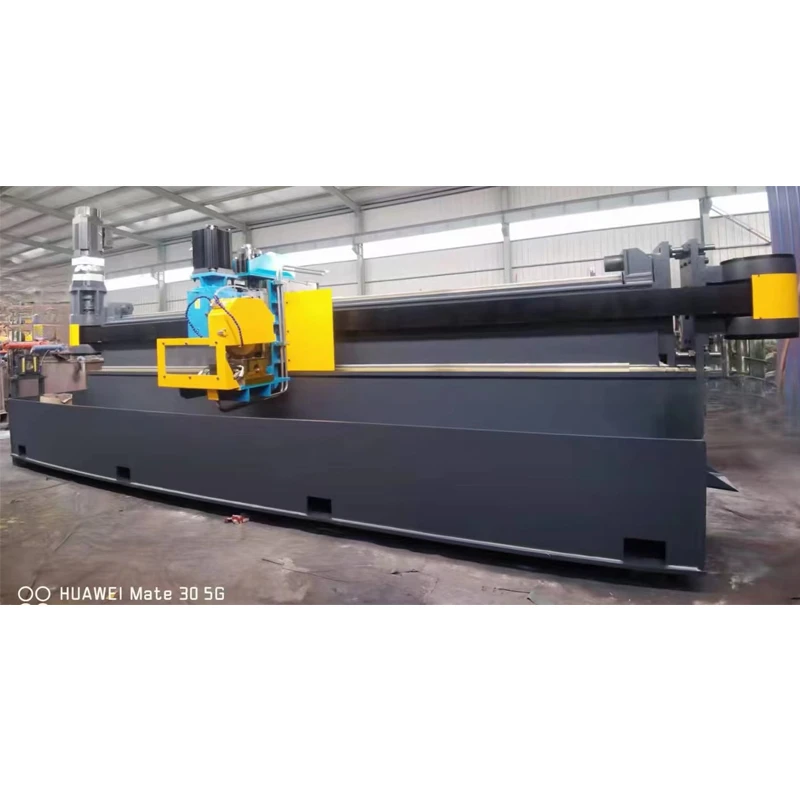Innovative Solutions for Metal Roll Forming Systems and Their Applications
Understanding Metal Roll Forming Systems
Metal roll forming systems are critical processes widely used in the construction, automotive, and manufacturing industries. These systems are engineered to create lightweight yet strong metal components from flat sheets or coils of metal. By utilizing a series of rollers, the metal is gradually shaped into the desired profile, making roll forming a highly efficient and cost-effective production method.
The Roll Forming Process
The roll forming process begins with the selection of a metal sheet or coil. Commonly used materials include steel, aluminum, and copper, which can be galvanized or coated to enhance durability and resistance to corrosion. Once the right material is chosen, it is fed into the roll forming machine, where it passes through a series of rollers. Each roller is specifically designed to incrementally bend and shape the metal into its final profile.
The design of the rollers is critical for producing uniform products. They must be meticulously engineered to ensure that the metal is formed with precision, and the entire system must be calibrated to accommodate the thickness and type of metal being used. This setup enables the production of complex shapes and profiles, including framing, panels, and various structural components.
Advantages of Metal Roll Forming Systems
One of the primary advantages of metal roll forming systems is their efficiency. The continuous nature of the process allows for high-speed production, which can significantly reduce lead times compared to other forming methods. This is particularly beneficial in industries such as construction, where materials need to be delivered quickly to meet project timelines.
Additionally, roll forming is renowned for its material usage efficiency. It generates minimal waste since the material is formed directly from the coil without significant cutouts. Finally, the process can produce parts with high levels of precision and repeatability. This consistency is crucial in industries where dimensional accuracy plays a vital role in performance and safety.
Versatility and Customization
metal roll forming systems

Metal roll forming systems are incredibly versatile. They can be customized to produce a wide variety of profiles, ranging from simple shapes to complex designs. Industries often require specific designs tailored to their unique applications, and roll forming can accommodate these needs.
Moreover, roll forming machines can be designed to combine multiple operations into a single process. For example, they can perform additional functions such as punching, cutting, or welding, all in one continuous operation. This multi-functional capability adds to the operational efficiency and reduces the need for multiple machines or processes.
Applications Across Industries
The applications of metal roll forming systems are vast. In the construction industry, they are used to create structural components, roofing systems, and wall panels. The precision and strength of roll-formed products are essential for ensuring the integrity and safety of buildings.
In the automotive sector, roll forming is employed to produce parts like chassis components, interior panels, and other structural elements. The lightweight yet strong nature of the formed metals contributes to the overall performance and fuel efficiency of vehicles.
Additionally, various other industries, such as HVAC (heating, ventilation, and air conditioning), appliance manufacturing, and even electronics, leverage roll forming systems to create high-quality components tailored to their specific requirements.
Conclusion
In summary, metal roll forming systems are an integral part of modern manufacturing processes. They provide a combination of efficiency, precision, and versatility that is hard to match. As industries continue to evolve and demand innovative solutions, metal roll forming will likely play a pivotal role in the future of production technology. Companies investing in roll forming technology can enhance their operational capabilities, improve material usage, and ultimately deliver superior products to their customers. Whether in construction, automotive, or any other industry, the impact of metal roll forming systems is undeniable, making them a cornerstone of contemporary engineering and fabrication.
-
High Frequency Straight Seam Welded Pipe Production Line-BzZhou Xinghua Machinery Equipment Manufacturing Co., LTD.|line pipe steel&welded gas pipeNewsJul.30,2025
-
High Frequency Straight Seam Welded Pipe Production Line-BzZhou Xinghua Machinery Equipment Manufacturing Co., LTD.|High Precision&Automated SolutionsNewsJul.30,2025
-
High Frequency Straight Seam Welded Pipe Production Line - BzZhou Xinghua Machinery Equipment Manufacturing Co., Ltd.NewsJul.30,2025
-
High Frequency Straight Seam Welded Pipe Production Line-BzZhou Xinghua Machinery Equipment Manufacturing Co., LTD.|Precision Welding, High EfficiencyNewsJul.30,2025
-
High Frequency Straight Seam Welded Pipe Production Line|BzZhou Xinghua|Precision Welding&EfficiencyNewsJul.30,2025
-
High Frequency Straight Seam Welded Pipe Production Line - BzZhou Xinghua|Precision Engineering&EfficiencyNewsJul.30,2025


